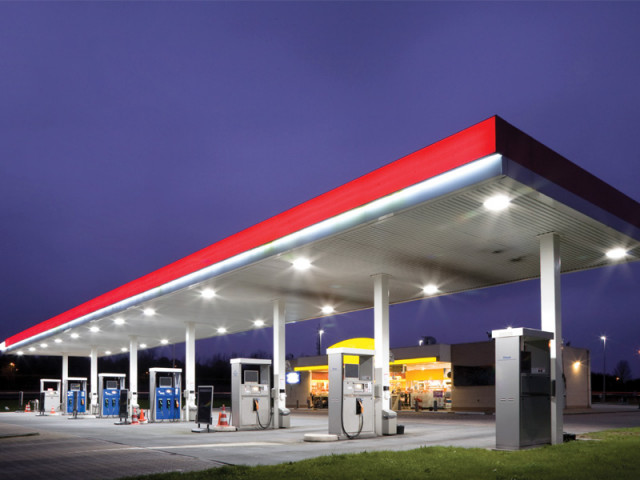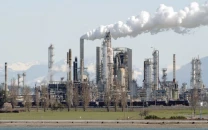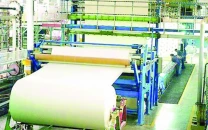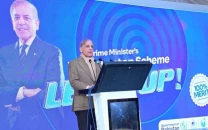LNG use in CNG stations: Oil ministry wins backing of premier and cabinet
Claims move will save Rs200 billion in oil imports every year.

The Ministry of Petroleum and Natural Resources has taken the prime minister and his cabinet members on board over the planned consumption of liquefied natural gas (LNG) in compressed natural gas (CNG) filling stations, claiming that the move will help save Rs200 billion per year in oil imports.
“A market-based system for LNG import and its use in CNG stations has been contemplated and is being introduced. The financial impact of this initiative will be Rs200 billion per annum,” said Petroleum Minister Shahid Khaqan Abbasi in a cabinet meeting on October 31.
For handling LNG supplies, a fast-track terminal is being established in Karachi, which will start operating in the next three months and will be able to receive 400 million cubic feet of gas per day (mmcfd).
“Tender for another 400mmcfd capacity LNG terminal of Sui Southern Gas Company was floated recently and being pursued vigorously,” Abbasi said. In the meantime, he added, negotiations with China National Petroleum Corporation (CNPC) were under way for setting up an LNG terminal at Gwadar and laying of a pipeline from the port city to Nawabshah.

Pakistan is going to open the market for LNG trade as Pakistan State Oil (PSO) says it has received a better response from reputed producers and suppliers like Shell and British Petroleum.
In the private sector, CNG stations are the first that have come up with a plan to give up consumption of locally produced natural gas and use imported LNG. The power sector will be another consumer that will use imported LNG in place of furnace oil.
According to the petroleum ministry, the country will be able to save $300 to $700 million in annual furnace oil imports by turning to LNG.
The Economic Coordination Committee (ECC) – the top economic decision-making body – has approved incentives for LNG consumption in CNG stations such as exempting imports from the gas infrastructure development cess.
It has also decided to impose 5% general sales tax on LNG imports in all cases, instead of the prevailing tax rate of 17%. The government believes that this decision will facilitate the general public and encourage investment.
The exemption from cess and the reduced sales tax will keep LNG 25% to 30% cheaper than petrol and encourage investors to set up more LNG terminals and related infrastructure, according to government officials.
Owners of CNG stations stress that these moves will not only protect the Rs450-billion investment in the industry, but will also stimulate a fresh injection of Rs100 billion, protect thousands of workers from layoff and facilitate consumers.
Published in The Express Tribune, November 30th, 2014.
Like Business on Facebook, follow @TribuneBiz on Twitter to stay informed and join in the conversation.



















COMMENTS
Comments are moderated and generally will be posted if they are on-topic and not abusive.
For more information, please see our Comments FAQ